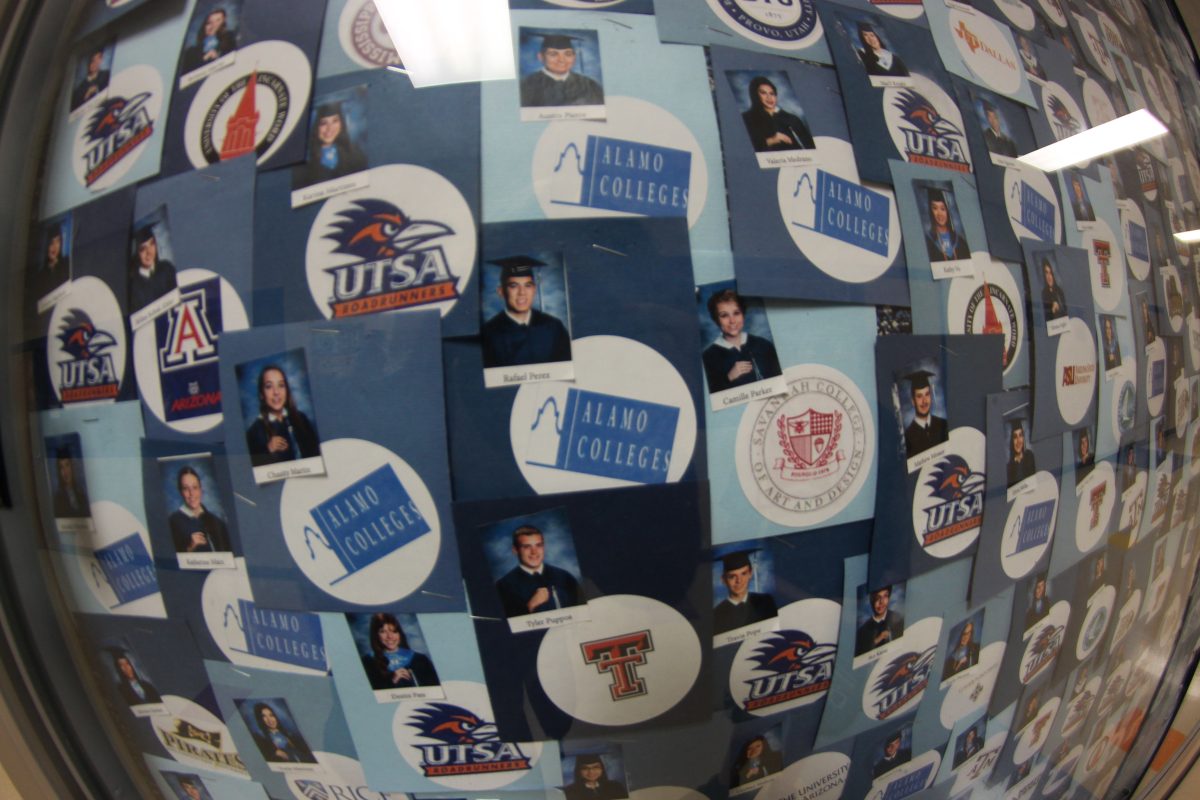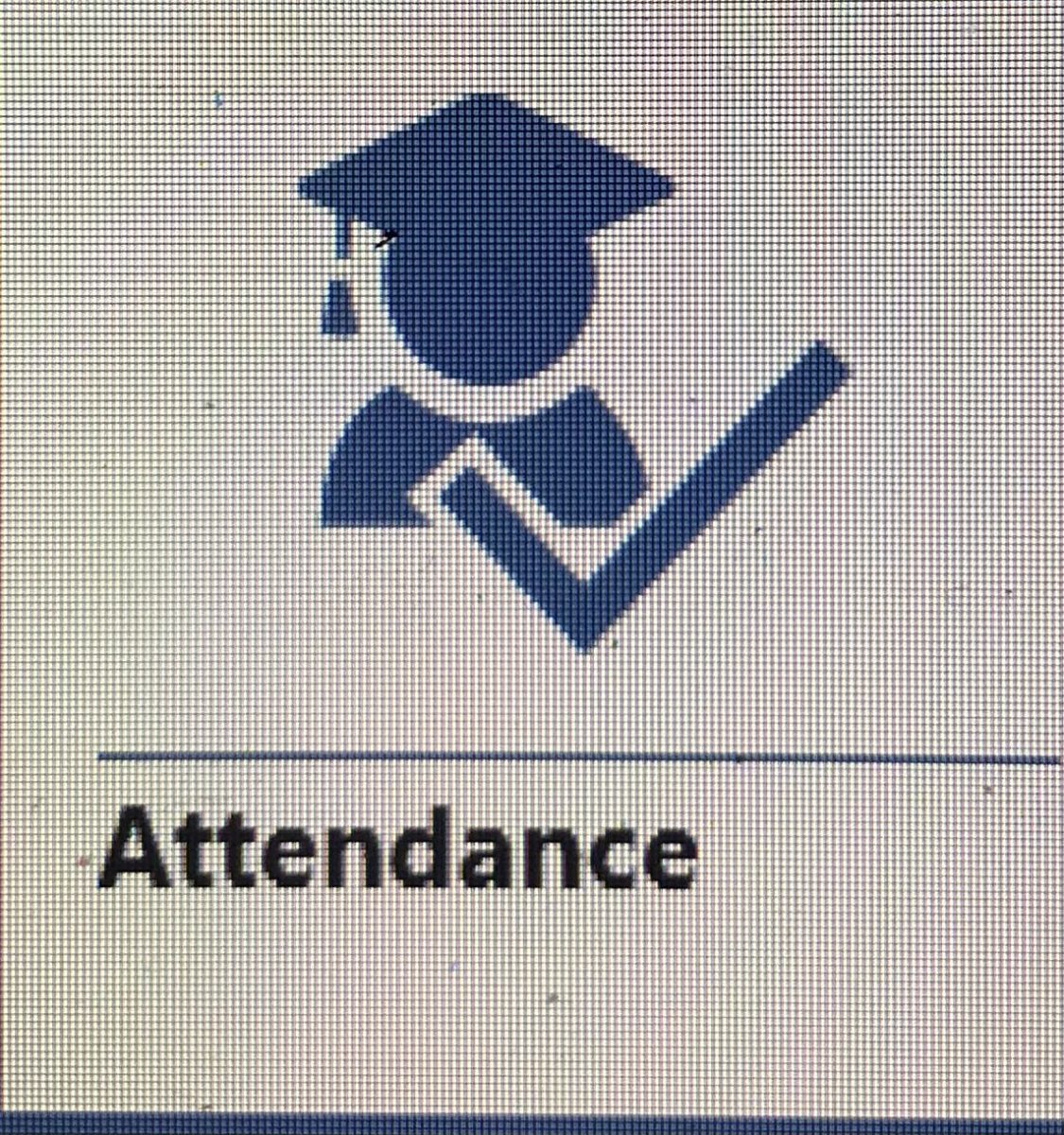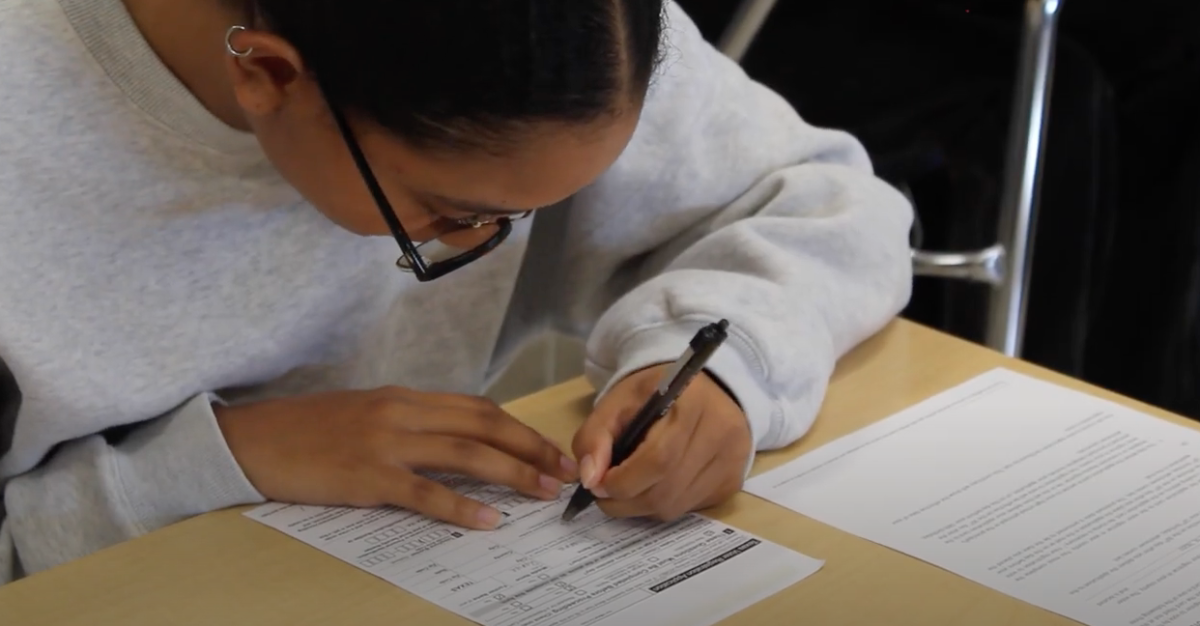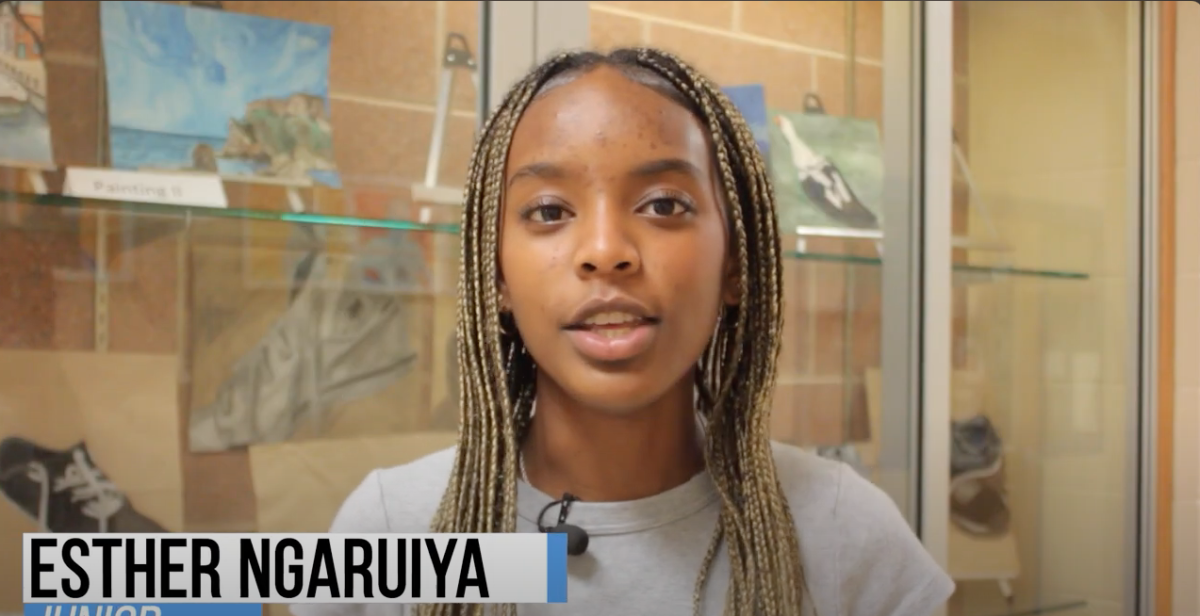by Aliyah Armstrong | staff writer
Even as this school year comes to an end, the work is not over yet. While some seniors have already been accepted to college because they applied early, others are still awaiting their letters of acceptance because they applied later on.
“There are two kinds of early admission. One is where you are obligated to attend that school once you apply, and then there’s another early admission where it’s non-binding,” counselor Patricia Snider said.
In other words, early decision is binding and early action is non-binding.
“Non-binding early admission is where you apply early and if you get accepted, you can go [to school there]. But if you decide later that you don’t want to, you have a certain deadline where you can back out – that’s the non-binding,” Snider said. “But [with] the binding, you are obligated to attend that school and if you had applied to other schools you have to pull all of your applications.”
Applying for early admission to a college or university requires more planning then applying at the regular admissions deadline, according to Snider.
“Well if a student wants to do…early decision I think is what it’s called, they really have to do their homework way beforehand. Hopefully they’ve visited this school so that they’ll know that they like the campus, they like the city, they like the programs at that school; they’ve done their homework on the school and they know, OK this is definitely where I would like to spend the next four years. That’s number one,” Snider said. “Number two they need to look at the cost of the school and make sure what they think their financial package might be or what their parents can afford, and what they can afford, just to make sure that once they’re admitted they can actually pay the cost of admission.”
Although applying early decision or early action requires more preparation, there may also be some benefits for students.

“Of course the biggest pro is knowing that you’re accepted and you know where you’re going,” Snider said.
Some students who have applied early also seem to agree that having already been accepted to a college makes their senior year a little less stressful.
“I’ve definitely benefitted because it’s given me more time to apply for scholarships. I got a job and I didn’t have to stress about school as much,” senior Matt Kimmel said.
Class rank is also a motivation to apply early because of the Texas universities that offer automatic admission to the students who are in the top 7-8% of their graduating class.
“I think the fact that we get our rank at the end of our junior year and you can apply with that, it steers a lot of people to do that [apply early], because then it makes senior year a lot easier,” Kimmel said. “Because I don’t want to say you don’t have to work as hard but you’re definitely more comfortable at school because you are already admitted and you do know where you’re going.”
Based on these factors, both early decision or early action are advantageous choices, however there are some aspects that students may want to consider.
“Some students believe it gives them a benefit in that they might have a better chance in being accepted, and I actually used to believe that too but I talked to some college admissions people and they said that’s really not necessarily true. So I don’t know if that should be the only reason somebody does early decision,” Snider said.
Although both types of early admission offer security in knowing you’re accepted, early decision takes away an important freedom.
“I know one negative about doing early decision because this affected me personally, because one of my children did early decision when they applied to Columbia University. They offer you a financial package and you are stuck with that financial package, whatever they offer you,” Snider said. “When you apply to several schools, you can kind of see OK this person’s offering me this much, this college is offering me this much. And then you can kind of figure out well what would be the better financial package for you, and when you do early decision you sort of lose that flexibility.”
Applying by the regular deadline comes with its own set of pros and cons.
“You apply by the deadline and some schools have rolling acceptance where you apply and within six weeks, you’ll know whether or not you’ve been accepted. More and more schools are going towards that and then others have the typical wait where you have the deadline and then you find out in the spring whether or not you’ve been accepted,” Snider said.
One key advantage of regular application is the additional time component.
“Well you have more time to prep your essays and you have more time to review it with your peers or the teachers that you might get to edit your essay,” senior Magdelene Lee said.
However, there are still deadlines in place and the application must be completed in its entirety prior to the deadline in order to be considered for admission.
“If you’re applying to a school that does have rolling admissions you probably want to get your application in as soon as possible because that would be a definite benefit,” Snider said. “They will fill up their spots so you want to take advantage of rolling admission if they’re offering it.”
Whether it’s early admission or regular admission, receiving a letter of acceptance from a college or university can definitely cause seniors to relax just a little bit more.
“It’s just kind of changed my mindset of coming into my classes,” Kimmel said.














